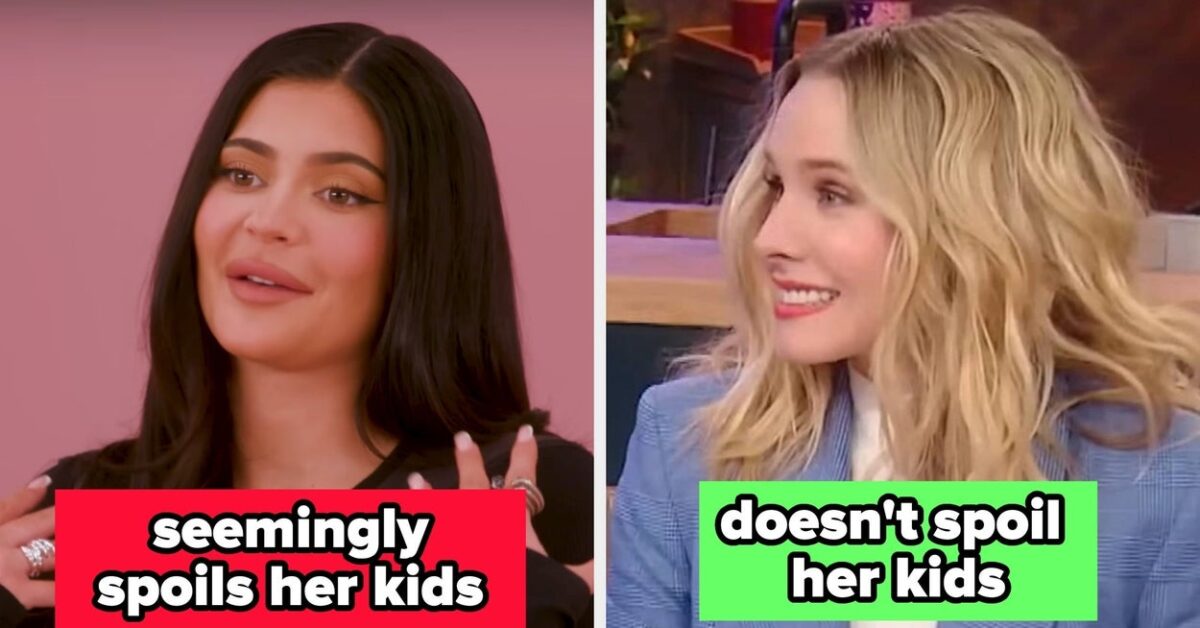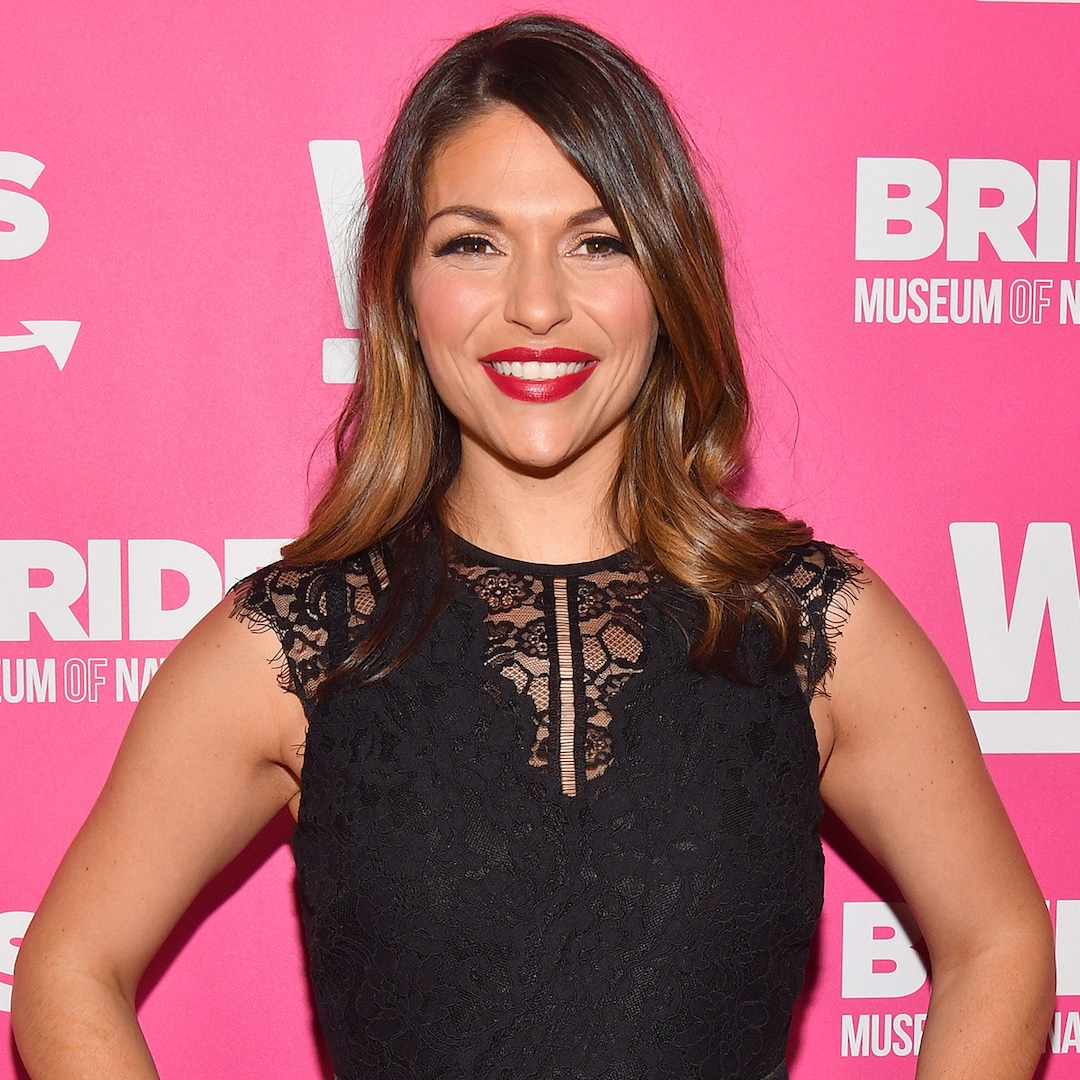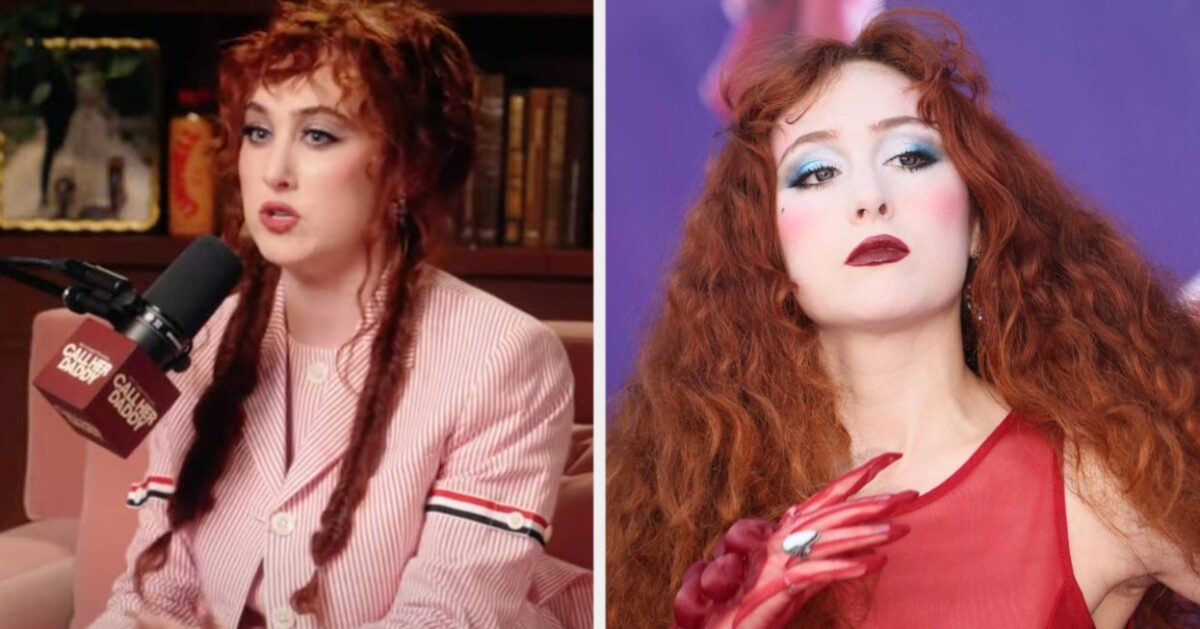
‘Back to Black’s Marisa Abela on the Challenge of Portraying Amy Winehouse
May 20, 2024
The Big Picture
‘Back to Black’ is a biopic that explores Amy Winehouse’s life, music, and struggle with fame and addiction.
Marisa Abela sings all the songs in the film, bringing emotional depth to Amy Winehouse’s performances.
Director Sam Taylor-Johnson reframed Winehouse’s brilliance in the biopic to honor her legacy and music.
Directed by Sam Taylor-Johnson, the biopic Back to Black chronicles the life, talent, and personal demons of Amy Winehouse (played by Marisa Abela, who also sings all the songs in the film) by taking the audience on a journey through her raw and emotional music. The young singer/songwriter wanted the world to hear her songs, but struggled with a level of tabloid fame that never gave her a moment of peace. And as she sang about relationships and rehab, collecting acclaim and awards along the way, her heartbreak and pain kept leading her back down a dark path that ended with her tragic death in 2011 at the age of 27.
During this interview with Collider, Abela and Taylor-Johnson discussed why they both chose to run toward and not away from this project, why it was important for Abela to sing the songs herself, the inner versus outer obstacles in Amy’s life, seeing the full look in character with the hair and tattoos, the Amy and Blake (Jack O’Connell) dynamic, shooting the very first draft of the script, and never doubting that they would make the film work. They also talked about how it’s been hard to leave this experience behind them, while Abela expressed her excitement to find the next character she can build from the ground up.
Back to Black It chronicles the life and music of Amy Winehouse, through the journey of adolescence to adulthood and the creation of one of the best-selling albums of our time.Release Date May 17, 2024 Writers Matt Greenhalgh
Marisa Abela Felt the Opportunity to Play Amy Winehouse in ‘Back to Black’ Was a Gift
Image via Focus Features
Collider: Marisa, it seems like there would be so many reasons to run far away from playing Amy Winehouse. What were the biggest fears that you had in doing so and how did you ultimately find the confidence within yourself to do it?
MARISA ABELA: I completely disagree. I don’t know why anyone would run far away from this. Of course, there’s a certain amount of pressure that comes, but if you throw your hat in any public arena, you’re taking on that responsibility. It’s better in life to be brave and do things that you feel like you have a genuine artistic instinct to run towards. If I had no connection to her, and I didn’t understand her, and I didn’t feel that I understood her wants and desires, her intentionality, and her perspective, then I wouldn’t do it. But as soon as I felt a connection to who she was as a woman, I was running super hard and fast towards it. The reason that people love biopics is that these people are more incredible than fictional characters. They are the most impressive, high-functioning, artistic, creative, wild, impulsive people that we know have actually existed. There’s a real fascination there as a human, but also as an actor. What a gift to be able to play someone as emotionally complex and nuanced and willful as Amy Winehouse.
Related ‘Back to Black’ Cast Guide: Who Is Starring as Amy Winehouse? Marisa Abela belts out as the British icon in the film.
Sam, did you have any initial hesitation about doing this, or was it more about finding the version of the story that you felt you most connected to and wanted to tell?
SAM TAYLOR-JOHNSON: When they asked me to do it, I said yes before I really understood the responsibility of what I was taking on, in many respects, but I tend to do that anyway. With this, I wanted to work with Matt Greenhalgh, who’d written my first movie Nowhere Boy, because I knew he would understand how I wanted to make this movie somehow different from a traditional music biopic. In the same way that Nowhere Boy isn’t a traditional music biopic, this one had to feel like there was a perspective and that the perspective was her perspective, therefore going on her journey and understanding what it is to be a creative soul and where that comes from. Similarly, I ran towards it because I knew her brilliance and I felt like the tragedy of her being a victim had started to eclipse how brilliant she was, so I wanted to reframe that and gift back her music and her brilliance. It was clear quite quickly, but then you do start thinking about how the undertaking is enormous, with the responsibility to people that knew her, her family, and also, her huge fan base.
Did Marisa Abela Sing Amy Winehouse’s Songs Herself for the Performances in ‘Back to Black’?
Image via Focus Features
The music is a lot to take on because it’s not only about singing the songs, but also physically embodying them. Marisa, did you have a favorite performance? Was there one song that you most enjoyed getting to sing?
ABELA: Honestly, it’s such a boring answer, but all of them, for such different reasons. That was why we decided, in the end, that it was important, if I could get close to it, that I sing the songs myself. The emotional truth behind every performance in our movie is so interesting. There’s so much intention. There’s so much vulnerability. When she’s singing “Stronger than Me” for the first time in the Dublin Castle in front of Nick Shymansky, that excitement of, “I might book my first agent tonight,” is really fun to play. And then, on the flipside of that is singing “There is No Greater Love” to Blake in front of a room full of people that already know the album Back to Black and you’re a superstar, but the only thing that matters to you is that Blake feels that you only have eyes for him in that moment.
All these things, as an actor, are incredibly amazing things to be able to play. It’s not a scene where you have a ton of obstacles and you’re like, “I want to tell you I love you, but I’m embarrassed.” That doesn’t exist for Amy. There are hardly any inner obstacles. Most of her obstacles are outer obstacles, like she’s too famous to be able to walk down the street on her own anymore, but her intention and what it is she wants to do, she just does. That was all really exciting. There’s the Grammy performance singing “Rehab” to a room full of people that know your struggles with sobriety and alcohol addiction, when you’re not even allowed to go to America because of those struggles, so you’re winning five Grammys that night while you’re banned from the States. I got to sing a song like “Rehab” with the intensity behind that real performance. That is just a gift, as an actor.
What was it like to actually see yourself in the wardrobe, the hair and makeup, and even the tattoos? All of it is so incredibly distinct. How was it to experience yourself like that?
ABELA: It was very difficult, that whole process, because my work was so internal for so long. To me, the point was, “Can they feel Amy? Does this feel like her? Am I doing a good enough job of stepping inside her soul?” The work was so internal for me. The external part was everyone else’s job. You have to hand over the reins to other people to make her look distinguishable. I know that’s such a part for an audience who’s thinking, “Can I just look at a snapshot of you and do you look just like Amy Winehouse?” I struggled with that because my job, as an actor, is to breathe life into her soul. What you want to do is just say, “Trust me, I know her.” After a while, it’s incredibly helpful to go from walking around in 9-inch Louboutins versus ballet flats in Camden versus having a huge beehive and eyeliner and tattoos. It is helpful. In the end, it does change the way that you feel, but it’s hard not to hold onto the work that you’ve done in preparation really tightly.
Related Marisa Abela Embodies Amy Winehouse in New ‘Back to Black’ Image The upcoming biopic will soon hit theaters next year.
Sam, what was it like to watch Marisa go through everything and find that transformation, and then to see the scenes really unfolding in front of you?
TAYLOR-JOHNSON: I can’t describe how it makes my job so enjoyable because I’m working with somebody who is rising to the challenge that’s been set, but in a way that surpasses all expectations. At the offset, I said, “I don’t want an impersonation. I want you to embody her.” And she did that. It just felt like knowing that Marisa was coming from within on a very deep, soulful level, I was like, “Okay, now that you’ve got that and I know the collaboration is there, we can just go in and create this scene with confidence that is going to play well.” There wasn’t a day when I dreaded going to work and was thinking, “Oh, God, how am I going to make this work?” I knew that the combination of both of our intentions was gonna match and create something special.
‘Back to Black’ Director Sam Taylor-Johnson Found the Relationship with Blake Fielder-Civil Through Amy Winehouse’s Songs
Image via Focus Features
A big piece of this story is that core relationship between Amy and Blake and what it did to both of their lives. There are a couple who might have loved each other, but they were also the definition of toxic. What was the key to finding that relationship for you guys, to understanding that dynamic, to working on it together as actors, and shaping it through the editing process? It’s such a complex dynamic.
TAYLOR-JOHNSON: For which there’s a complex answer. It’s not really one thing. There were so many ways to approach it, but the singular and only way to approach it in my mind was to go to the music and how she spoke about him and her love for him, the pain of that love, and the heartbreak and the joy. Everything was written down. It was all there for me to mine and take a path through. That’s the straightforward answer. And then, the more complex answer was about how to create those scenes which are behind closed doors. So much of their life was documented on the outside, but then we had to go into the mindset of her. Through the music, how do we create certain scenes that are in the bedroom or when they first come together? The other thing was to convince an audience that they should fall in love with their love. Their love, to her, was so paramount to who she was when she wrote Back to Black, one of the greatest albums of our time. There’s complexity and many layers to answer that. I had to understand, from my perspective as a filmmaker, that if I could take you on a journey where you see them falling in love, and I shot that in one long take, you just see two people talking about the books they love and the music that they love. You see the connection and the real time falling in love, and then the audience is gonna go along on that ride of what creatively made Back to Black. So, it’s a difficult question to answer, but a straightforward one, in many ways, because it’s all in the music.
Marisa, how did you and Jack O’Connell approach finding that dynamic? Did you have conversations about the dynamic between Amy and Blake, or did you want to find it in the moment?
ABELA: I found a clear piece of source material in her music for how intense this love was to Amy, as well as letters that that they would write to one another and footage of them together. There’s footage of Amy and Blake on set together, where people are trying to ask Amy questions, and all she can do is just stare at Blake. It’s so intense, that infatuation that she had, so the task was clear for the two of us. It wasn’t like we had to have conversations about, “How much do you think they love each other?” That wasn’t what we were doing. We knew what it was. We also had a great working relationship, so there was a lot of freedom there to be able to really explore that love, generously and without self-consciousness. It was also there in the script and it was there with Sam. Especially in moments like the time that they first meet each other, you have to take a bit of an imaginative leap. Did they fall in love immediately, or was it tentative flirting? You get a bit of all of that in that scene, where it’s tentative at first, but then they’re hard and fast people, so it just makes sense that that’s how they’d fall in love.
Director Sam Taylor-Johnson Shot the Very First Draft of the ‘Back to Black’ Script
I read that you guys actually shot the very first draft of the script. Is that true? That seems unheard of. Does that ever happen?
TAYLOR-JOHNSON: No. It’s crazy, but what Matt turned in was a perfectly structured piece of writing. It’s unheard of for a studio, but they said, “Don’t touch a thing,” which was music to my ears. But we really didn’t adjust anything. In the edit, I think we lost a scene or maybe two, but I can’t remember what they even are. What we shot was the first draft, which is crazy and unheard of, but it felt like if we took one thing out, it was like scaffolding that would just fall down because it was so intricately constructed.
With something like this, where it does seem so all-consuming, how do you move on from it? How do you pick the next project?
ABELA: I don’t know that we have yet.
TAYLOR-JOHNSON: It’s so interesting how you think that you’re gonna let go of it at the end of filming. But then, I’m in the post-production phase and you think, “Okay, once this is done, I’m gonna be able to let go.” And then, you’re in the promotion phase. There comes a point where you don’t want to let go and there’s a fear of letting go because it’s been so integral to me, every single day for the past couple of years. The transition period out of her life is going to be quite difficult, but also, it’s necessary.
Related The Perfect Amy Winehouse Movie Already Exists The Oscar-winning documentary is an intimate portrayal of the icon’s life.
Marissa, have you thought about what type of character you might like to play next? Do you enjoy putting this much of yourself into a role?
ABELA: This one required so much of my dedication and my wherewithal and my craft, as an actor, but it really didn’t demand that much of me. The goal is to empty yourself out as a vessel for the other person to come in because they’re real. So, I’m excited to take more imaginative leaps now, for my next job. I finished playing Amy and I went straight onto Industry, which is a show that I’ve now done three seasons of. That’s a character that I’d already created, so I haven’t actually worked from a place of, “Who is she? What kind of clothes does she wear?,” for quite a while. I’m very excited, with my next job, to start from scratch again and to make those kinds of creative decisions.
Back to Black is playing in theaters. Check out the trailer:
Get tickets
Publisher: Source link
27 Celebrity Parents Who Spoil Their Kids Or Refuse To
27 Celebrity Parents Who Spoil Their Kids Or Refuse To Many parents value providing a better life for their kids than they had growing up. However, when those parents are rich and famous, it can be easy to indulge them.…
Apr 4, 2025
Bachelorette’s DeAnna Pappas Breaks Silence on Her Arrest
Jenn Tran & Devin StraderStatus: Split During the season 21 finale of The Bachelorette, it looked like The Bachelor alum Jenn Tran was finally getting her happy ending with her final pick Devin Strader. But Jenn, 26, revealed on…
Apr 4, 2025
People Are Coming For Chappell Roan After She Said Pop Stars Shouldn't Have To Be Political Experts
Chappell argued it's "impossible" for pop stars to stay in the know.View Entire Post › Disclaimer: This story is auto-aggregated by a computer program and has not been created or edited by filmibee.Publisher: Source link
Apr 3, 2025
Gwyneth Paltrow, Chris Martin’s Daughter Apple’s College Major
Gwyneth Paltrow’s Daughter Apple Martin Addresses “Really Upsetting” Criticism in Rare InterviewYou won’t want to object to Apple Martin rare insight into her college life. Gwyneth Paltrow and Chris Martin’s 20-year-old daughter revealed what she is studying at Vanderbilt University—and…
Apr 3, 2025











